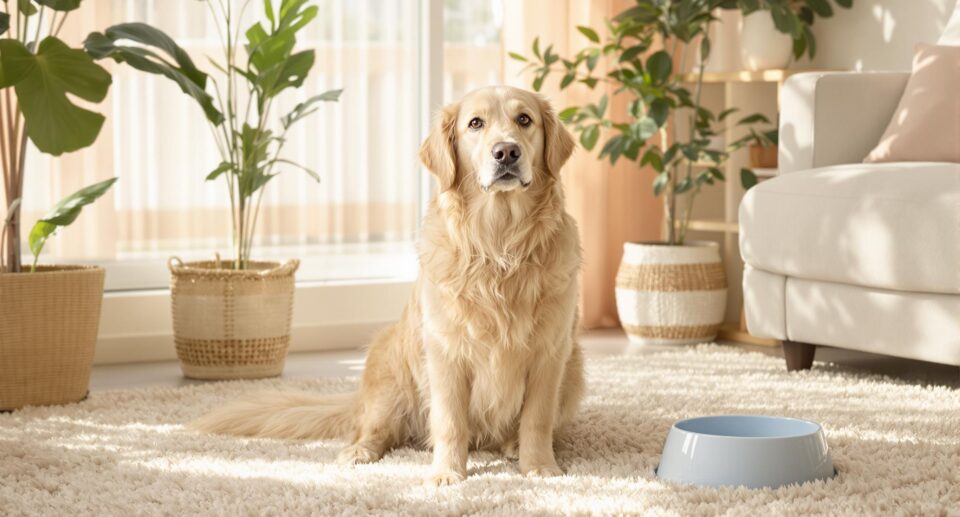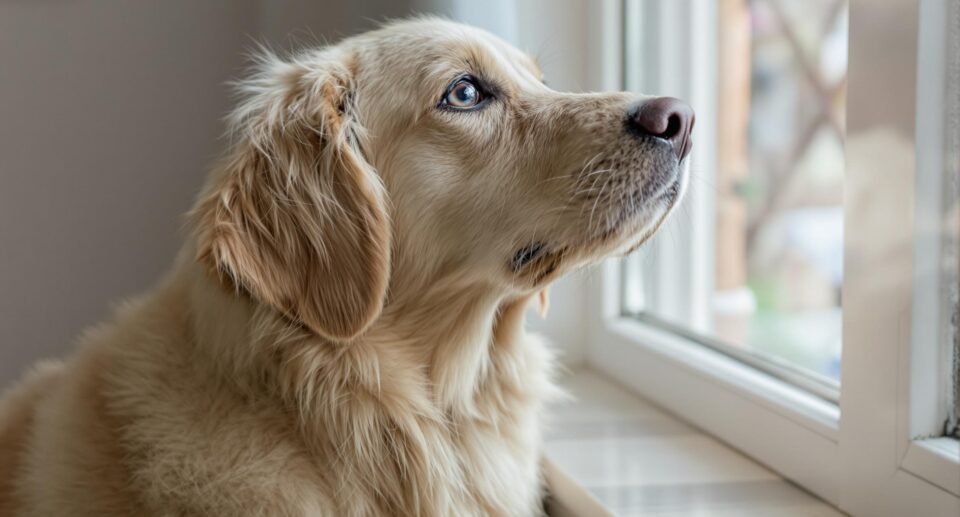
Key Takeaways
- Increased mucus in your dog’s stool may indicate digestive health concerns, requiring attentive monitoring and possibly veterinary evaluation.
- Mucus in dog poop can result from simple dietary adjustments or infections, and most cases respond well to proper diagnosis and treatment.
- Preventive measures, such as consistent feeding schedules and gradual dietary transitions, are critical in maintaining your dog’s digestive health.
Noticing changes in your dog’s stool helps you stay proactive about their health. While small amounts of mucus are normal and help food move through the digestive system, paying attention to increased mucus in dog poop can alert you to potential health concerns early. Dogs communicate their health status through these subtle signs, making regular monitoring an essential part of pet care.
Changes in your dog’s stool can happen for many reasons, from simple dietary adjustments to digestive health issues. Some conditions like parvovirus require immediate veterinary care, while other issues like anal gland problems may cause temporary changes in stool appearance. Understanding these changes helps you make essential decisions about your pet’s health. PetHealthMD is here to help you recognize normal and abnormal signs in your dog’s stool, ensuring you can take action when needed.
What Causes Mucus in Dog Stool?
A small amount of mucus in dog stool is perfectly normal. It’s a clear, jelly-like protective coating that helps waste move smoothly through your dog’s digestive system. This natural substance appears as a shiny or slimy coating on your dog’s waste. However, when you notice more mucus than usual, especially if it’s cloudy or colored, it might mean your dog’s digestive system needs attention.
Common and Temporary Causes
Diet Changes
Sudden changes in your dog’s food, like switching brands or introducing new treats, can disrupt their digestive balance and trigger excess mucus. This is usually temporary and clears up once their digestive system adjusts. If the mucus persists for more than a couple of days or is accompanied by diarrhea or appetite loss, consult your veterinarian.
Eating Something New
Dogs who eat something they shouldn’t, like table scraps or garbage, may have a temporary increase in mucus as their body reacts to the new or irritating substance. If your dog also shows signs of vomiting, lethargy, or ongoing digestive upset, your vet can help rule out more serious issues like toxins or infections.
Stress or Routine Disruptions
Stress can affect your dog’s gut health. Events like moving homes, a new family member, or travel can lead to mild digestive changes, including more mucus in the stool. These changes are typically short-lived, but if your dog doesn’t bounce back within a day or two, it’s a good idea to get a vet’s input.
Medical Causes
Infections and Parasites
Bacterial infections, viruses, or intestinal worms can inflame your dog’s digestive tract, prompting it to produce more mucus. These conditions often cause additional symptoms like loose stools, vomiting, or a drop in appetite. If you notice any of these signs or if the mucus is accompanied by blood, reach out to your veterinarian promptly.
Food Allergies and Sensitivities
Some dogs have long-term digestive sensitivities. Food allergies or intolerances may cause recurring mucus in stool along with chronic upset stomach or soft stools. If you’ve ruled out short-term causes and symptoms persist, your vet can help with testing and a specialized diet plan.
Digestive Disorders
Conditions like pancreatitis or inflammatory bowel disease can disrupt how your dog digests food, leading to frequent mucus in the stool. These are typically ongoing issues that require a veterinary diagnosis and long-term management. If mucus in your dog’s stool becomes a regular occurrence, make an appointment with your vet to explore possible underlying conditions.
What Can Help With Mucus in Dog Poop?
Because mucus in your dog’s stool can have a variety of causes, it’s important to work with your veterinarian to identify the underlying issue. In the meantime, certain steps may help support your dog’s digestive system. Your vet might recommend starting with a bland diet, such as boiled chicken and rice, to give the digestive tract time to recover. Probiotics can also help restore balance to the gut, especially if your dog has recently had diarrhea or antibiotics.
If food sensitivities are suspected, your vet may guide you through an elimination process by removing ingredients one at a time. In cases where bacteria or parasites are involved, prescription medications will be necessary. Maintaining a calm, predictable routine and ensuring your dog gets regular exercise may also reduce stress-related digestive upset.
Just like with other gastrointestinal conditions, from anal gland irritation to parvovirus, following your vet’s advice is the best way to support your dog’s recovery. Regular check-ins will allow your vet to monitor progress and make adjustments as needed.
Mucus in Dog Poop FAQs
Let’s address the most common questions about mucus in dog poop to help you make informed decisions about your pet’s health.
When Should I Consult a Veterinarian About Mucus in My Dog’s Stool?
Contact your vet if you see blood in the stool, severe diarrhea, or signs of dehydration like dry gums or sunken eyes. Mucus combined with vomiting, lethargy, or appetite changes also deserves attention. Puppies, senior dogs, and pets with health issues may be more at risk, so don’t wait if symptoms last more than 24 to 48 hours.
Can Mucus in Dog Poop Be Related to Stress or Anxiety?
Yes, dogs can experience digestive upset in response to stress, including changes in environment, new pets or people in the home, or disruptions to their routine. Stress can lead to inflammation in the gut, resulting in excess mucus in the stool. Talk to your vet about behavioral support or stress-reducing strategies if your dog’s symptoms seem tied to stressful events.
Is Mucus in Dog Stool Contagious to Other Pets?
Mucus itself isn’t contagious, but the underlying cause might be. If the mucus is due to an infectious condition like parasites or a viral infection, other pets in the household could be at risk. If you have multiple pets and one is showing digestive symptoms, it’s a good idea to isolate them and check with your veterinarian.
Can Certain Dog Breeds Be More Prone to Mucus in Stool?
Some breeds with sensitive digestive systems, like Boxers, Bulldogs, and German Shepherds, may be more prone to gastrointestinal issues that cause mucus in the stool. Dogs with food intolerances or inflammatory bowel conditions are especially at risk. Knowing your breed’s tendencies can help you stay proactive.
Does Mucus in Poop Always Mean Something Is Wrong?
Not always. A small amount of clear, jelly-like mucus in an otherwise healthy stool can be completely normal. It helps lubricate the colon and support smooth waste elimination. It’s only when you notice increased, cloudy, bloody, or colored mucus that it becomes a potential concern.
How Does a Vet Diagnose Mucus in Stool?
Diagnosis starts with a physical exam and a stool sample test to check for parasites, harmful bacteria, or abnormal cells. Sometimes, your vet may recommend blood work or imaging to rule out more serious conditions like inflammatory bowel disease or pancreatitis.
Can Commercial Dog Foods Cause Mucus in Poop?
Yes, some commercial foods, especially those with fillers, artificial additives, or sudden ingredient changes, can cause digestive upset and mucus in the stool. If food sensitivity is suspected, switching to a high-quality, limited-ingredient diet with your vet’s guidance may help.
What Does It Mean If the Mucus Is Yellow, Green, or Bloody?
Yellow or green mucus might indicate an infection or bile imbalance, while red or bloody mucus suggests inflammation or bleeding in the lower digestive tract. These are signs to consult your veterinarian promptly, as they may indicate more serious underlying conditions.
Can Over-the-Counter Treatments Help Reduce Mucus in Dog Poop?
While some pet parents try OTC probiotics or bland diets at home, using these approaches under your vet’s guidance is best. Not all digestive issues respond to home care, and some treatments might delay diagnosis of a more serious condition.
Supporting Your Dog’s Digestive Health
Understanding digestive health is key to your dog’s happiness and comfort. Research shows that digestive issues are among dogs’ most common health concerns. The good news? Regular observation and gentle care go a long way in maintaining your pet’s digestive wellness. Our guide for first time dog owners and nutrition recommendations offer practical tips for building healthy habits.
Working together with your veterinarian creates the best path forward for your dog’s health. They can help develop a care plan that fits your pet’s needs. With trusted resources and vet recommended products from PetMeds, including options in our Dog Supplies category, it’s easier to give your dog the care they deserve and the peace of mind you need.





